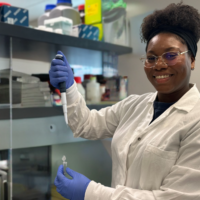About
NeuroBlitz has been a tradition in the Department of Neurobiology and Behavior (NBB) since 2006. This upcoming year, the seminar series will be held once a month during the academic school year, featuring 6 graduate student speakers each session. Unlike other programs on campus, NeuroBlitz remains organized and coordinated by the graduate students, allowing for the control of their own professional development. Ultimately, NeuroBlitz serves as an opportunity to develop one’s communication skills with the support of all members within the NBB department.
Communication
It’s difficult to think of a skill, other than communication, that encompasses so many domains. Interviews, conferences, and manuscripts all require an individual to convey information in a concise manner while presenting themselves appropriately. In fact, an amazing idea (or scientific breakthrough) relies on communication to truly have an impact.
Seminar Details
Venue:
Location: Herklotz Conference Room, Qureshey Research Lab
Duration: 1.5-Hour
Time: 12:00pm – 1:30pm on scheduled Wednesdays (see schedule dates below)
Attendance: All undergraduate, graduate, post-doctoral, staff, and faculty members are invited to attend
Speaker:
Time Limit: 10 minutes
Questions: 5 minutes (following presentation)
Speaker Information:
Prepare a 10-minute presentation with a brief introduction/background, hypothesis, data/results, and future directions.
Coordinators
Bri McWhorter, the Founder and CEO of Activate to Captivate, will be joining us to provide individualized feedback for each of the speakers.
Communication Tips:
- Be the Expert – Be confident in the fact that you are an expert in your field of research. Everyone in the room has come to learn from you as well as support your continued success.
- Be a Storyteller – Great speakers captivate their audience with a creative story to introduce their topic or convey concepts through analogies. You can even consider sharing why you’ve become so invested in your line of research. Be a little vulnerable here.. your audience wants to connect with you as a person.
- Be Enthusiastic – Express your excitement for your research and you’ll find that your audience will reflect it right back at you. How? Smile, maintain eye-contact, and control your tempo/tone!




